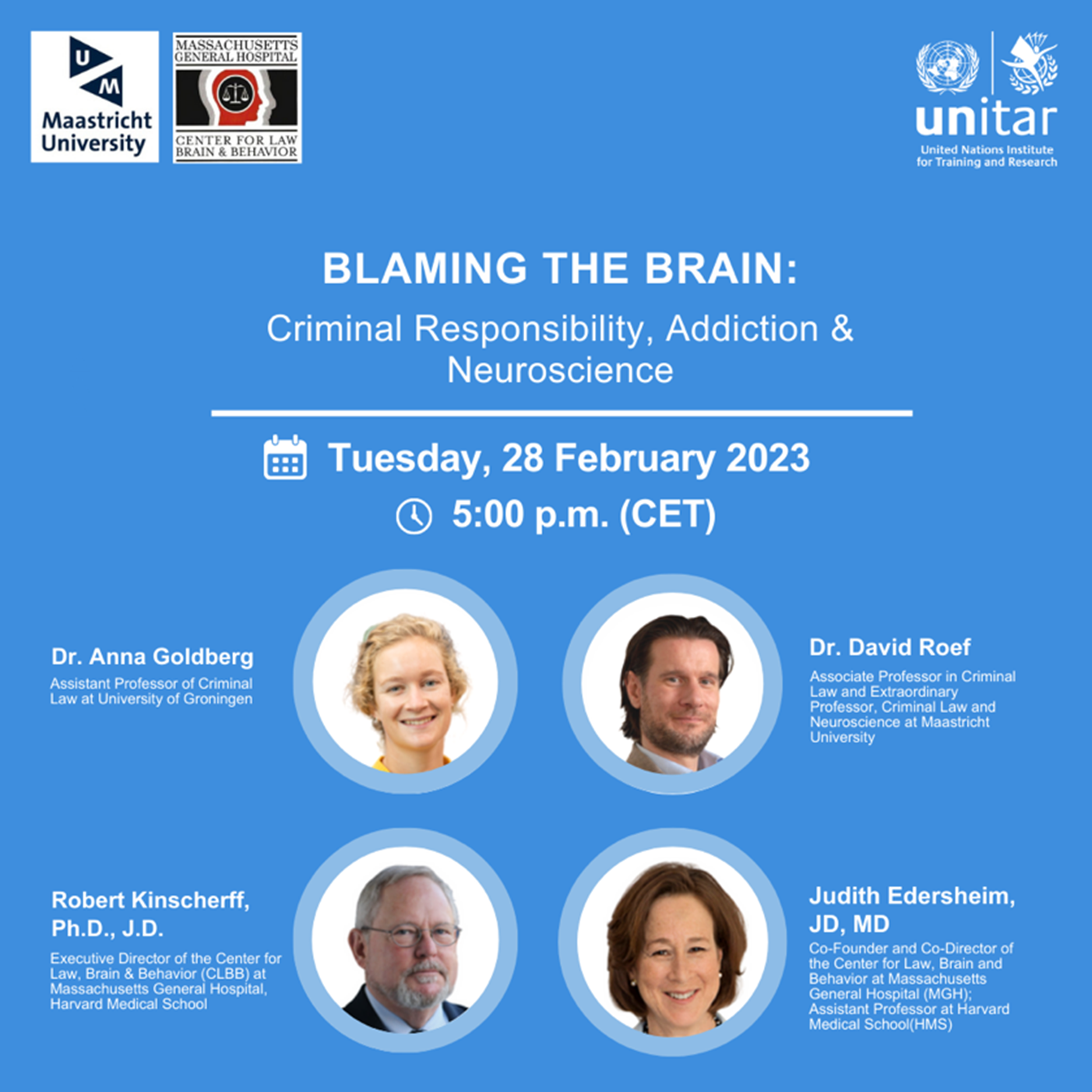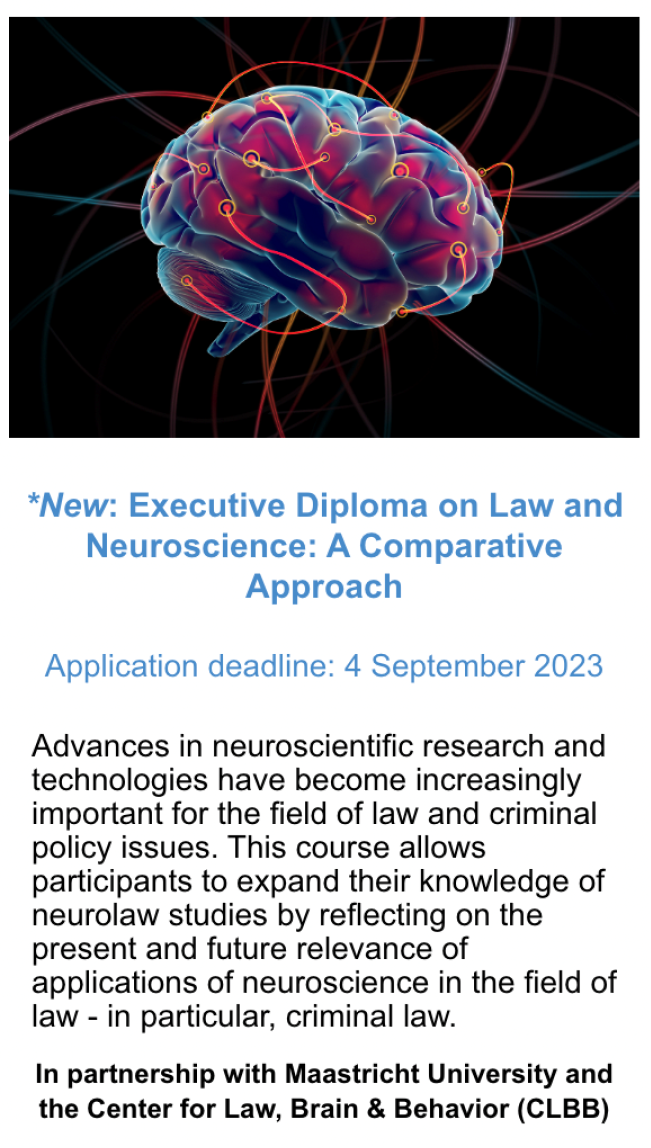News
February 22, 2023
This message brings news about:
A) Open Webinar – “Blaming the Brain: Criminal Responsibility, Addiction & Neuroscience”
B) Executive Diploma on Law and Neuroscience
A. Open Webinar – “Blaming the Brain: Criminal Responsibility, Addiction & Neuroscience”
Event Description:
Join a panel of experts from The United Nations Institute for Training and Research, Maastricht University, Groningen University, and the Center for Law, Brain & Behavior at Massachusetts General Hospital (Harvard Medical School) for a free webinar that examines criminal responsibility in light of neuroscience models of addiction, psychiatric illness, decision-making, and volition. Discussion will include comparative law approaches, and participants will have the opportunity to ask questions and advance their understanding of the field.
Date and Time:
Tuesday, 28 February 2023, at 5 p.m. CET
Registration:
Please click here to register for the webinar.

B. Executive Diploma on Law and Neuroscience
New Course Announcement: The United Nations Institute for Training and Research (UNITAR) is now offering an Executive Diploma on Law and Neuroscience - A Comparative Approach.
Overview: Advances in neuroscientific research and technologies have become increasingly important for the field of law. Not only are the number of court cases involving neuroscientific evidence rapidly rising, neuro-legal studies are also used to inform us on substantive legal doctrines, such as the insanity defence. Additionally, the interaction between the law and the neurosciences is highly relevant for criminal policy issues, such as the possible implications of brain research for juvenile offenders or addicts. However, the use of neuroscientific techniques in the legal system is not without its problems, and raises empirical, practical, and ethical questions.
This course critically reflects on the present and future relevance of applications of neuroscience in the field of law, in particular criminal law. By using a comparative approach, considering both US and European jurisdictions, participants will understand how neuroscientific research may inform criminal justice doctrine, practice, and policy.
The programme is slated to run from 4 September to 8 October 2023.
Learn More and Apply: https://event.unitar.org/full-catalog/executive-diploma-law-and-neuroscience-comparative-approach
The Executive Diploma on Law & Neuroscience - A Comparative Approach is implemented by UNITAR in collaboration with The Center for Law, Brain & Behavior (CLBB) at Massachusetts General Hospital (MGH), and Maastricht University (MU), with faculty affiliated with Harvard Medical School, Harvard Law School, Stanford Medical School.

Neurolaw News is produced by
The MacArthur Foundation Research Network on Law and Neuroscience
, headquartered at Vanderbilt Law School, 131 21st Avenue South, Nashville, TN 37203, under the directorship of Owen D. Jones.
Further Information
Generally: http://www.lawneuro.org/
Neurolaw Bibliography: http://www.lawneuro.org/bibliography.php
Neurolaw News Archives: http://www.lawneuro.org/listserv.php#archives
Neurolaw Video Channel: http://www.lawneuro.org/videos.php
Phone inquiries: (615) 343-1287
To UNSUBSCRIBE or to SUBSCRIBE: visit http://www.lawneuro.org/listserv.php or send an email to Quenna Stewart at quenna.stewart@vanderbilt.edu with either “Unsubscribe” or “Subscribe” in the subject line.
Feel free to forward this newsletter to friends and colleagues who may be interested.
